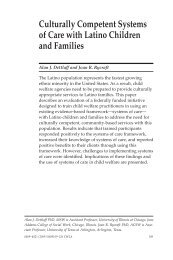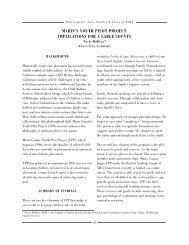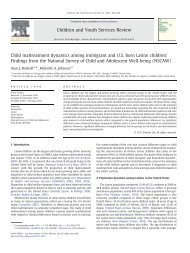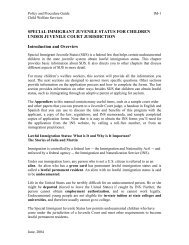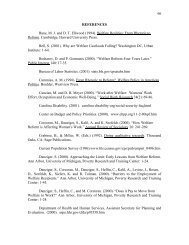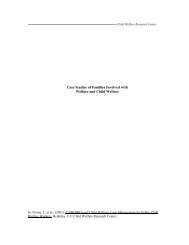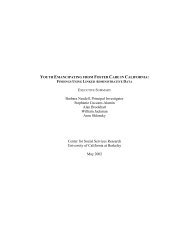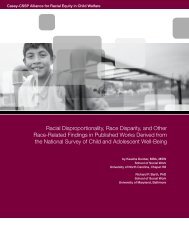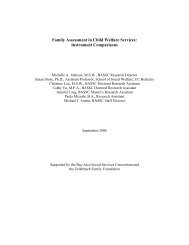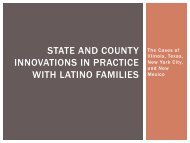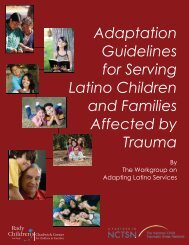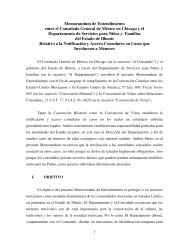Developing a Self-Assessment Toolfor Culturally - Office of Minority ...
Developing a Self-Assessment Toolfor Culturally - Office of Minority ...
Developing a Self-Assessment Toolfor Culturally - Office of Minority ...
Create successful ePaper yourself
Turn your PDF publications into a flip-book with our unique Google optimized e-Paper software.
Pr<strong>of</strong>essions Education Partnership Act <strong>of</strong> 1998 (Public Law 105-392)—has since served asthe focal point within the Department for the implementation and monitoring <strong>of</strong>recommendations originating from the Report <strong>of</strong> the Secretary’s Task Force, and forproviding leadership and coordination <strong>of</strong> an accelerated national assault on the persistenthealth disparities between racial and ethnic minorities and the rest <strong>of</strong> the U.S. population.In response to the persistent health disparities experienced by the nation’s minoritypopulation and in keeping with its mission, OMH funded the CLAS in LPHAs project todevelop a self-assessment tool that could be used by LPHAs to gather data which providesa description <strong>of</strong> their organizational CLAS provision. This tool was designed to assistLPHAs in their quality monitoring and improvement efforts. Using the tool will helpLPHAs to develop appropriate policy and programmatic responses that meet the uniquehealth needs <strong>of</strong> the culturally and linguistically diverse populations they serve. Given thatthis was a first attempt to develop a comprehensive self-assessment tool to measure CLASwithin LPHAs, it was important to use a conceptual framework that represents acomprehensive set <strong>of</strong> essential CLAS components across the health care continuum. Thus,the project employed the CLAS conceptual framework and its corresponding instrumentsand protocols previously developed and tested in OMH’s CLAS in MCOs study (OMH2003b).The CLAS in MCOs study was completed in 2003, but was initiated prior to thedevelopment and release <strong>of</strong> the national recommended standards for CLAS. The CLAS inMCOs study produced a conceptual framework that identifies the essential components <strong>of</strong>CLAS in health care settings across eight assessment domains, as well as a threecomponentinstrument to measure organizational CLAS provision which was tested andimplemented in MCO settings. Study results <strong>of</strong>fer a rich description <strong>of</strong> the nature andextent <strong>of</strong> CLAS provision reported by a sample <strong>of</strong> MCOs in the U.S. In addition,promising CLAS practices reported a number <strong>of</strong> MCOs are highlighted. The study’s fullreport (that includes the CLAS conceptual framework, the study design and data collectionmethods and instruments, and study results) is available at the OMH Internet web site. 4As described above, this project to develop a CLAS self-assessment tool for LPHAs isgrounded in the successes and lessons learned from the MCOs study. The CLASconceptual framework and the three-component instrument were revised for this projectbased on lessons learned during the conduct <strong>of</strong> the MCOs study and were modified to beappropriate for implementation in LPHA settings.An important project objective was to educate health pr<strong>of</strong>essionals in LPHAs abouttheir organizational CLAS practices. The goal was to design a self-assessment tool whichinforms LPHAs during the course <strong>of</strong> data collection by including a broad range <strong>of</strong> response4 http://www.omhrc.gov/inetpub/wwwroot/cultural/whatsnew.htm.COSMOS Corporation, December 2003 1-6



